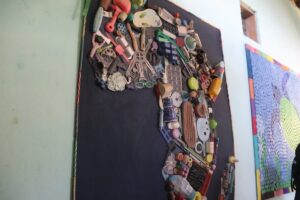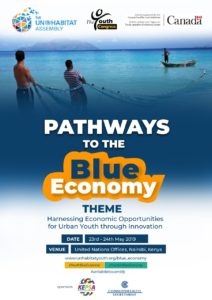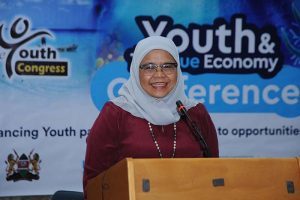
EcoWorld Waste Recycling Workshop in Watamu, Malindi with Mathare Youth
Watamu, Malindi became a city where sparks of waste management is becoming one of its essence. A recent development by 3 different but collaborated groups
The blue economy has a huge potential to drive sustainable growth. … A new joint initiative, namely ‘Go Blue‘, will contribute to unlocking precisely these potential sea-land opportunities in coastal urban centres by promoting sustainable economic growth, sea-land development and maritime law enforcement..
Ten percent of the world’s population depends on fisheries for their livelihoods, and 4.3 billion people are reliant on fish for 15 percent of their animal protein intake, Graziano da Silva told participants
The green economy is defined as an economy that aims at reducing environmental risks and ecological scarcities, and that aims for sustainable development without degrading the environment.
“The blue economy concept seeks to promote economic growth, social inclusion and preservation or improvement of livelihoods while at the same time ensuring environmental sustainability—all issues integral to the 2030 Agenda. So, to build a blue economy, we will need to put sustainability at its centre.
The ‘Blue Economy‘ is an emerging concept which encourages better stewardship of our ocean or ‘blue‘ resources. … Similar to the ‘Green Economy‘, the blue economy model aims for improvement of human wellbeing and social equity, while significantly reducing environmental risks and ecological scarcities.

Watamu, Malindi became a city where sparks of waste management is becoming one of its essence. A recent development by 3 different but collaborated groups

Efforts by Kenya to tap the unexploited potential of the maritime industry, commonly known as the ‘Blue Economy’, came into sharp focus recently when a

Event Title Pathways to the Blue Economy – Harnessing Economic Opportunities for Youth through Innovation (Pathways) Event Type Organization(s) hosting UN-Habitat Start and

Nairobi, 27 November 2018 – Speaking on the second day of the Sustainable Blue Economy Conference, UN Under-Secretary-General and Executive Director of UN-Habitat, Ms. Maimunah
Eligibility Criteria
All ages up to 24;
If you are less than 18 years old, please provide the contact details of a guardian.
Submission Process
Please use this link to sign-up for the challenge;
Familiarize yourself with the health benefits of public space and Minecraft;
The challenge starts from April 1st;
Submissions will be accepted from May 15th until May 31st.
Submission Requirement
Your submission must include:
A compressed Minecraft world file (max 500mb);
A short description of how your idea is making public spaces healthier and more enjoyable for you(th) (max 400 words/all languages).
Project Criteria
Our judges are seeking for ideas that are: innovative, transformative, inclusive;
The submission that excels in all criteria will win the grand prize.
Judging Process
First round: 10-15 submissions will be selected;
Second round: The selected submissions will pitch their projects to the judges.
Prizes
The main prize is $5,000 towards implementation of the winning solution.
Terms and Conditions
By participating in the challenge you grant UN-Habitat that the images and/or filmed footage can be used on UN-Habitats & UN-Habitats Youth social media accounts, brand merchandise, website, and can be shared with press media outlets. From time to time, materials may also be used by its partners.
Still have questions left? Contact us via unhabitat-urbanhealth@un.org.